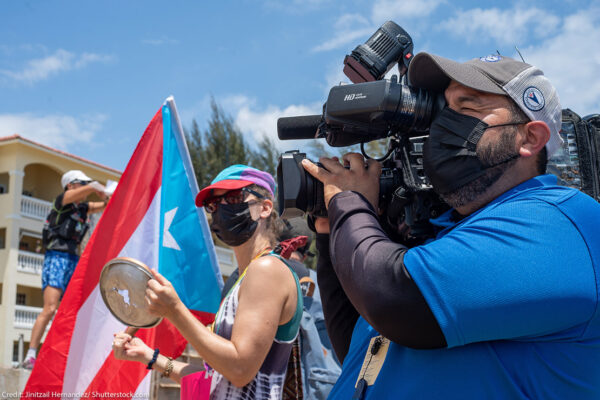In Victory for Open Government, New Jersey Supreme Court Rules Videotaping of Public Meetings is a Basic Right
FOR IMMEDIATE RELEASE
CONTACT: media@aclu.org
NEWARK, N.J. - The American Civil Liberties Union of New Jersey praised a New Jersey Supreme Court decision released today that protects an individual's right to videotape public meetings.
"Videotaping is an invaluable method of documenting government activities or misconduct," said ACLU of New Jersey Legal Director Ed Barocas. "We are pleased that the Supreme Court recognized that American freedom and democracy depend on the people having a right to access government information."
In this case, Robert Wayne Tarus was denied the right to videotape the audience and certain speakers at a borough council meeting in Pine Hill, Camden County, New Jersey.
The New Jersey Supreme Court unanimously held that videotaping public meetings is part of the common law right to obtain public information.
Chief Justice James R. Zazzali, writing for the court, explained: "Openness is a hallmark of democracy -- a sacred maxim of our government -- and video is but a modern instrument in that evolving pursuit. ...The use of modern technology to record and review the activities of public bodies should marshal pride in our open system of government, not muster suspicion against citizens who conduct the recording."
The ACLU of New Jersey submitted a friend-of-the-court brief in the case, Tarus v. Borough of Pine Hill, et al., explaining that videotaping falls within the umbrella of the right to free speech, subject only to legitimate "time, place and manner" restrictions, and that videotaping provides a uniquely valuable source of information that may not be obtained through handwritten notes or audio recording.
"In no arena is the idea of open government as important as during government functions," said Jennifer Klear of Drinker, Biddle & Reath, who wrote the brief on behalf of the ACLU of New Jersey. "The Borough of Pine Hill inappropriately restricted that right."
Pine Hill argued that the public had no right to videotape and that, if it did, the restriction the town placed on videotaping was justified.
The New Jersey Supreme Court held that the town had not formulated any guidelines, which towns must do if they wish to restrict the right to videotape. Further, the court found that the ad hoc restrictions Pine Hill imposed were unreasonable.


